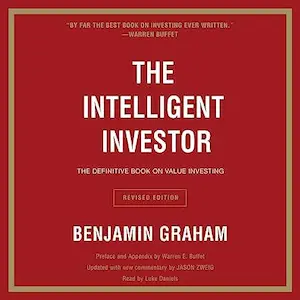The Intelligent Investor - Summary
Benjamin Graham

Introduction
The Intelligent Investor by Benjamin Graham is a classic investment book that has stood the test of time. First published in 1949, it has been updated and revised several times to reflect changes in the investment landscape. The book is considered a must-read for anyone interested in investing, whether they are a beginner or an experienced investor. In this essay, we will provide a summary of the book, highlighting its key themes and concepts.
Benjamin Graham: The Father of Value Investing
Benjamin Graham is considered the father of value investing, a strategy that involves buying stocks that are undervalued by the market. Graham’s investment philosophy is based on the idea that the stock market is not always rational and that investors can take advantage of this by buying stocks that are priced below their intrinsic value. He believed that investors should focus on the fundamentals of a company, such as its earnings, assets, and liabilities, rather than its stock price.
The Intelligent Investor: A Guide to Investing
The Intelligent Investor is divided into several sections, each of which provides valuable insights into the world of investing. The first section, titled “Investment versus Speculation,” distinguishes between investing and speculation and emphasizes the importance of investing for the long term. Graham argues that investors should focus on the underlying value of a company rather than trying to predict short-term market movements.
The Margin of Safety
One of the key concepts in The Intelligent Investor is the margin of safety. Graham defines the margin of safety as the difference between the intrinsic value of a stock and its market price. He argues that investors should only buy stocks when they are priced significantly below their intrinsic value, providing a margin of safety in case the market does not recognize the true value of the stock.
The Defensive Investor
Graham also distinguishes between two types of investors: the defensive investor and the enterprising investor. The defensive investor is someone who is more risk-averse and is primarily interested in preserving their capital. Graham recommends that defensive investors focus on investing in low-cost index funds or blue-chip stocks with a long history of stable earnings.
The Enterprising Investor
The enterprising investor, on the other hand, is someone who is more willing to take risks in order to achieve higher returns. Graham recommends that enterprising investors focus on individual stocks that are undervalued by the market. However, he warns that this approach requires more research and analysis than investing in index funds or blue-chip stocks.
Mr. Market
Another key concept in The Intelligent Investor is the idea of Mr. Market. Graham uses the metaphor of Mr. Market to explain the irrationality of the stock market. According to Graham, Mr. Market is like a business partner who offers to buy or sell stocks at different prices every day. However, the prices that Mr. Market offers are not always rational, and investors should be cautious about making decisions based on short-term market movements.
The Psychology of Investing
Graham also emphasizes the importance of understanding the psychology of investing. He argues that investors are often driven by fear and greed, which can lead to irrational decision-making. Graham recommends that investors develop a disciplined approach to investing, based on sound principles and a long-term perspective.
The Importance of Diversification
Finally, Graham stresses the importance of diversification in investing. He recommends that investors spread their investments across different asset classes, such as stocks, bonds, and real estate. This helps to reduce risk and provides a cushion against market volatility.
Conclusion
In conclusion, The Intelligent Investor by Benjamin Graham is a timeless investment classic that provides valuable insights into the world of investing. Graham’s investment philosophy, based on the principles of value investing, has influenced generations of investors. The book emphasizes the importance of investing for the long term, focusing on the underlying value of a company, and developing a disciplined approach to investing. It is a must-read for anyone interested in investing, whether they are a beginner or an experienced investor.